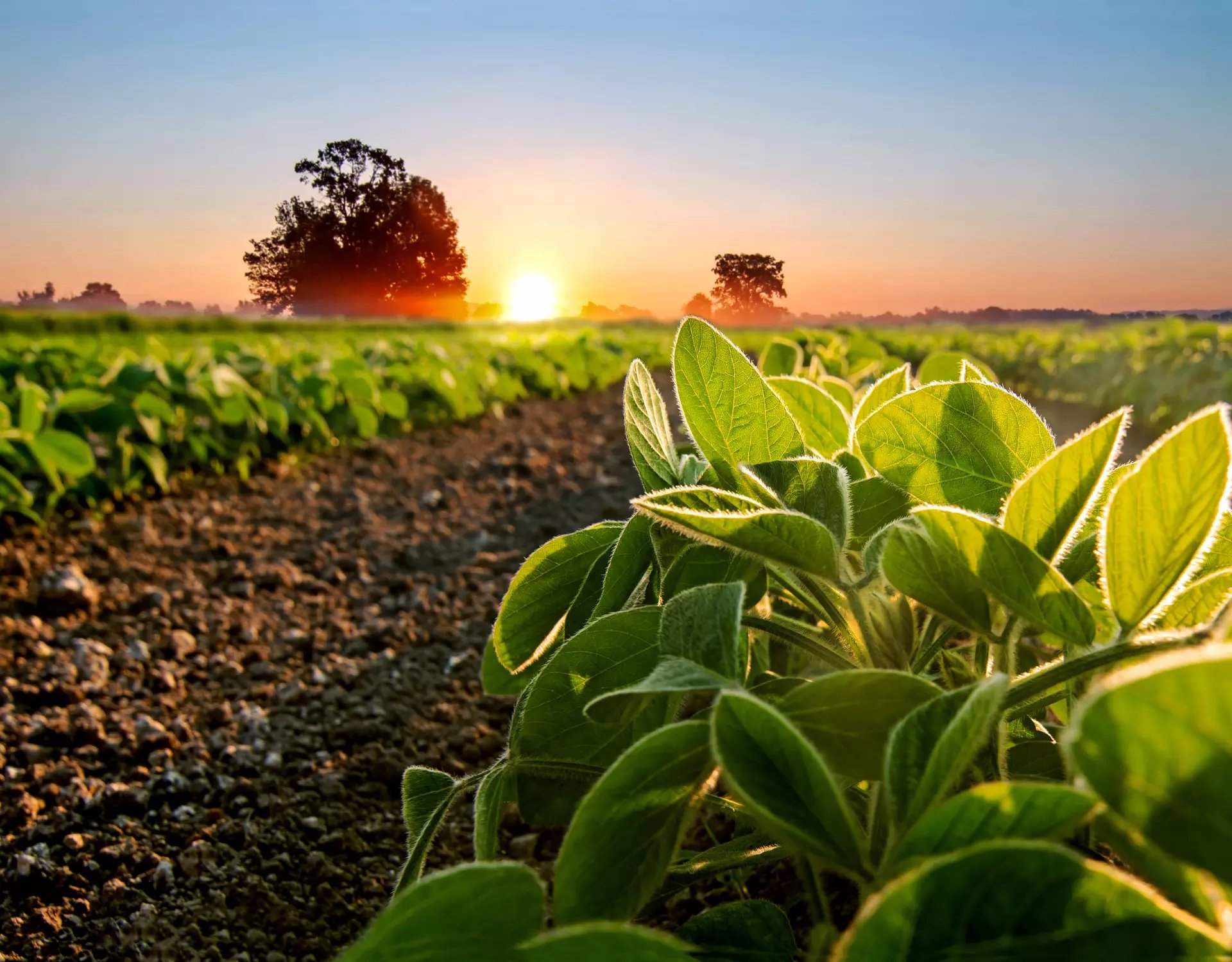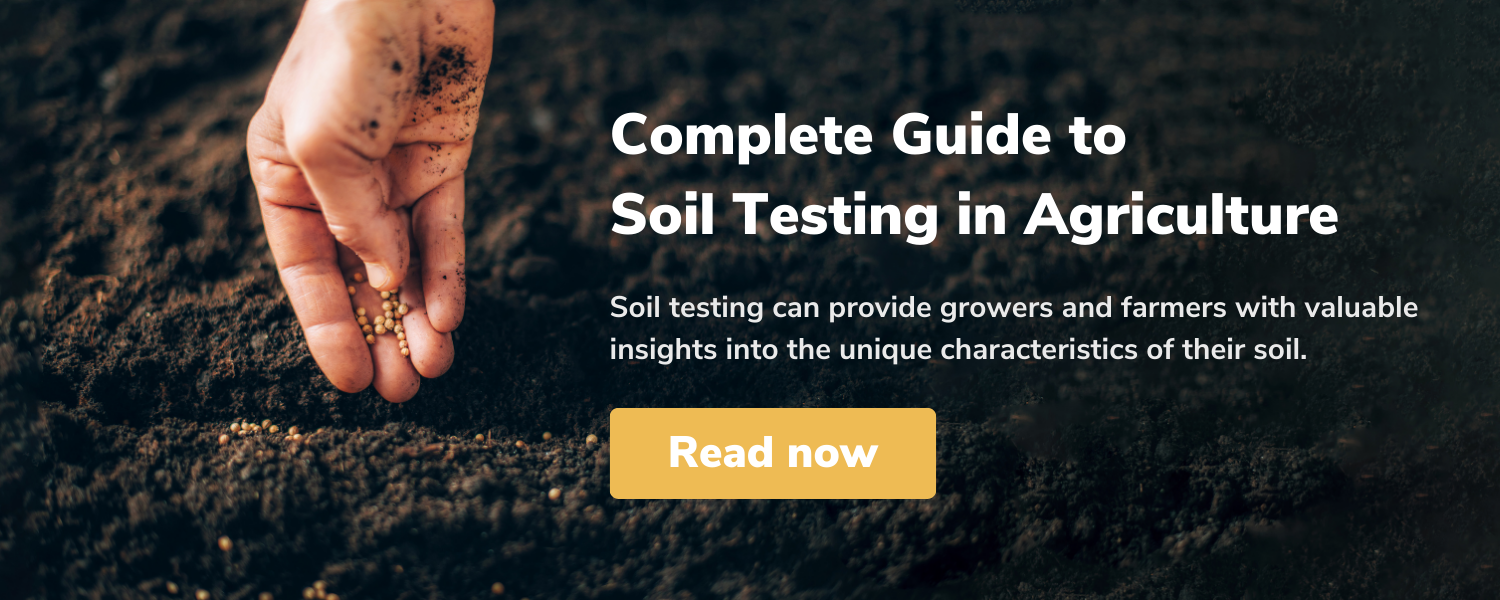Share this
Sustainable Soil Analysis Services: Removing The Guesswork
by Jamie Nix on 09/May/22
You only get one chance every year to get things right on the farm. So you should make sure that you have all the information you need at your fingertips. We recently sat down with 5th generation Nebraska corn and soybean farmer, Matt Rasmussen, to talk about the limitations of chemical soil testing.
With the help of Biome Makers’ BeCrop® Technology, Matt was able to fill in those gaps. The result was a record year for Matt’s farm.

In our latest webinar, Matt explained how the BeCrop® Test has changed his outlook on farming. Where traditional chemical soil tests would shine a candle on the makeup of Matt’s fields, the BeCrop® technology shined a fog light.
Speaking to farmers across the world, Matt told them apologetically, “if you aren’t testing, you’re guessing.” Biome Makers and BeCrop® technology remove the guesswork for farmers.
Check out our latest webinar >>
What is BeCrop®?
BeCrop® is the technology developed by Biome Makers to analyze soil health in a more complete way than ever before. 10 million soil samples are pulled every year in North America for soil analysis, but these only look at soil fertility management. The BeCrop® Test analyzes the complete biological profile of farmers’ fields.
Using DNA-Sequencing and Intelligent Computing, BeCrop® Technology provides a full biological analysis. The BeCrop® Test creates a user-friendly report showing what microorganisms and soil functions occur in your soil. It also illustrates the health of nutrient pathways that mobilize nutrients to feed your crops. A BeCrop® Test can forecast the threats of disease even before you plant, providing recommendations on how to treat your soil.
BeCrop® Technology identifies microbial biomarkers to provide an in-depth, meaningful explanation of soil function. The testing and analysis are crop-specific. Whether you’re growing soybeans, almonds, wheat, etc., you can understand the specific needs of your crops.
What Did BeCrop® Technology Reveal About Matt’s Fields?
As a 5th generation farmer in the cornhusker state, Matt had quality experience passed down to him over the years. Knowledge shared over 5 generations has provided Matt with some of the best education that money can buy.
He did caution that this pride in family traditions can make it difficult for farmers to go out in search of a full report of their fields. Nobody wants to shine a light on their family’s methods to find out that a miscalculation was made.
These miscalculations, however, aren’t a result of incompetence or an error in judgment. Previous generations did what was best according to the information available at the time.
BeCrop® Technology has unlocked new information and reliable data. Using this technology will provide deeper, more insightful information about your soil health. So it makes sense that your farming practices would change from how generations did it before you.
In Matt’s case, the BeCrop® Test results revealed that his soil was nutrient-rich. His family’s methods produced fertile soil – that wasn’t the problem. The issue was that his plants weren’t consuming those nutrients, particularly potassium and magnesium. The pathways for nutrient uptake had been blocked.
BeCrop®’s Biological Approach
Too many farmers go through the soil analysis process, receive their results, and are then left thinking, “Okay, so now what?”
Biome Makers has developed a repository of products that we’ve tested with BeCrop® Trials. for accuracy and effectiveness to offer the most complete recommendation of actions that any soil analysis can provide.
Biome Makers suggested that Matt look into biological input products. Specifically, microbial inoculants and plant growth promoters facilitate nutrient uptake in his crops. As the tests confirmed, Matt had plenty of potassium and magnesium in his fields, but his crops weren’t consuming it.
Our recommended actions for Matt opened up those nutrient pathways by generating a healthier rhizosphere for his crops. The microbial inoculants helped to unblock the pathways, allowing for fuller nutrient uptake.
After doing the BeCrop® Test, and listening to Biome Makers’ product recommendations, Matt’s white corn yielded a pound and a half greater test weight than in previous years. His whole farm soybean yield average increased by 25 bushels. One particular soybean yield check exploded to a record 108 bushels per acre! All was made possible by introducing biological solutions that worked in harmony with chemical fertilizer applications and timing.
Biome Maker's strategies are science-driven, natural, sustainable, and healthier for farmers’ fields and the environment as a whole. Being able to target precise issues eliminates the need for excess fertilizers and chemical additives. This has three critical benefits:
- Optimize agricultural input costs
- Reduce negative environmental effects of runoff fertilizers
- Crop quality and quantity improve (more nutritionally dense and higher yield output)
Using a biological solution, Matt was able to enhance crop quality, lower input costs, and engage in a much more sustainable way.
How is a BeCrop® Test Different From Other Soil Testing Services?
BeCrop® Technology enriches farming techniques by predicting disease threats prior to planting. This allows for targeted prevention methods that rely less on chemical treatments.
BeCrop® Test biological reports provide a much more in-depth view of fields than a chemical analysis is able to do.
But what about running crop trials? Isn’t that the best way to find out what really works?
Yes, crop trials are the tried and trusted method of learning about how different variables affect yields and crop health. But crop trials can also be very time-consuming and expensive. If not done properly, they can lead a farmer to draw false conclusions.
BeCrop® and the Biome Makers’ process reduce the need for crop trials for farmers. We work with manufacturers to perform BeCrop Trials, so you have verified information about input performance before the season even begins. BeCrop® Trials are in-depth, targeted results that give you the best recommendations and explain to you what is almost certain to happen in each of your proposed crop trials using DNA technology.
BeCrop® isn’t just an extrapolation or guessing mechanism, it is real soil predictive analysis. Or, as Matt put it, “the cold hard truth.”
You don’t have to guess what might work and keep your fingers crossed about a promising new trial. BeCrop® DNA-sequencing and intelligent computing software remove the guesswork.
Biome Makers provides new methods to improve fields before the start of the growing season. Farmers no longer have to wait all year for the results of crop trials.
Final Thoughts
BeCrop® technology provides farmers with a more complete analysis of their fields. It helps pinpoint the specific remedy to improve soil and crop health. This technology helps farmers understand the potential pathways for pathogens in their fields, and gives a biological solution to the problems. This prevents unnecessary fertilizer costs and environmental damage.
Biological solutions won’t completely replace chemical products. When used correctly, biological and chemical solutions complement each other to deliver maximum efficacy.
Ignoring biological analysis in soil analysis services gives farm owners an incomplete look at their soil’s health. Chemical solutions are nice, but they often miss part of the story and don’t act as expected. We saw an example of this with Matt’s farm and his lack of nutrient uptake despite fertile fields.
Using Biome Makers’ BeCrop® technology gives you a full understanding of your farm’s needs. Perhaps best said by Matt, “BeCrop is the key to productive and nutrient-dense crops.”
Get actionable results with BeCrop® technology. Contact us today and together, let’s optimize your farm.
Share this
- March 2026 (1)
- June 2025 (2)
- September 2024 (1)
- August 2024 (1)
- July 2024 (1)
- June 2024 (2)
- May 2024 (2)
- April 2024 (2)
- March 2024 (1)
- February 2024 (1)
- January 2024 (1)
- November 2023 (1)
- October 2023 (1)
- September 2023 (1)
- August 2023 (2)
- July 2023 (2)
- May 2023 (2)
- April 2023 (3)
- March 2023 (3)
- February 2023 (2)
- January 2023 (1)
- November 2022 (1)
- October 2022 (2)
- September 2022 (1)
- August 2022 (3)
- July 2022 (3)
- June 2022 (1)
- May 2022 (5)
- April 2022 (7)
- August 2021 (1)
- July 2021 (1)
- May 2021 (1)
- April 2021 (4)
- November 2020 (3)
- October 2020 (4)
- September 2020 (1)
- August 2020 (3)
- July 2020 (1)
- June 2020 (1)
- May 2020 (2)

